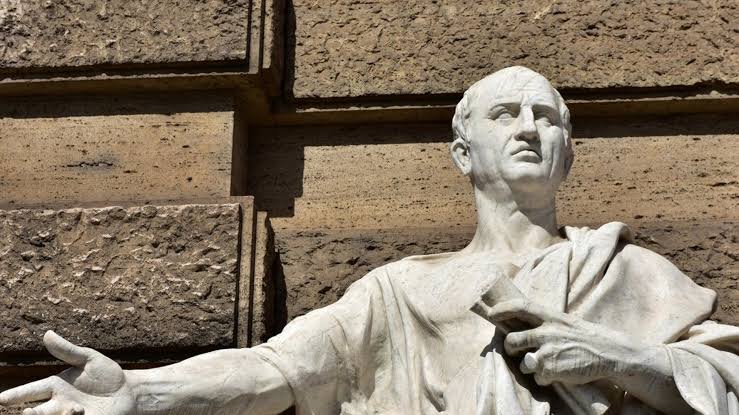Toppe Consulting – Your Source for Digital News & Trends in the Legal Industry
What ancient Rome can teach modern attorneys about client acquisition, reputation management, and building a successful practice.
If you think modern law firm marketing is competitive, try practicing law in ancient Rome where your reputation could make you a consul or send you into exile.
The Forum: Rome’s Original Courtroom
Every morning in ancient Rome, dozens of advocates gathered in the Roman Forum, the bustling center of legal and political life. But these weren’t “lawyers” as we know them today. They were called advocati, and they operated in a legal system that would seem both familiar and shockingly different to modern attorneys.
Here’s the twist: They couldn’t charge fees.
That’s right. Roman law explicitly prohibited advocates from accepting payment for their services. The Lex Cincia of 204 BC made it illegal to receive compensation for legal advocacy. Yet somehow, advocates like Cicero became wealthy and powerful. How?
The Ancient Client Acquisition Model
Roman advocates built their practices on something more valuable than hourly rates: social capital.
Instead of fees, advocates received honoraria – “gifts” from grateful clients that were technically voluntary but practically expected. These weren’t small tokens either. Wealthy clients would shower their advocates with land, money, political support, and social connections.
The system worked on pure reputation economy:
Public Performance Was Everything
Every case was argued in the open Forum, surrounded by crowds of citizens. A brilliant performance could launch your career overnight. A poor showing could end it just as quickly. Imagine if every motion hearing you argued was broadcast live to thousands of spectators, and you’ll understand the pressure Roman advocates faced.
Word of Mouth Was the Only Marketing
There were no billboards, no Google Ads, no attorney directories. Your reputation spread through one channel: people talking about you. Win a spectacular case, and Rome would know your name by sunset. Lose badly, and the same would happen.
Specialization Didn’t Exist
Roman advocates handled everything: criminal defense, civil disputes, property law, inheritance battles. You couldn’t build a practice around “personal injury” or “family law.” You had to be exceptional at all of it.
Cicero: Ancient Rome’s Marketing Genius
Marcus Tullius Cicero remains the most famous Roman advocate, and studying his career reveals sophisticated strategies that modern law firms would recognize.
He Published His Greatest Hits
Cicero didn’t just argue cases and move on. He published written versions of his best orations, ensuring they circulated throughout Rome and the provinces. Think of these as the ancient equivalent of case studies and thought leadership articles. His published speeches became textbooks that other advocates studied, cementing his reputation for generations.
He Cultivated High-Profile Clients
In 70 BC, Cicero took on the corruption trial of Gaius Verres, the notoriously corrupt governor of Sicily. The case was risky – Verres had powerful friends – but winning it launched Cicero into the top tier of Roman advocates. He understood that taking the right case could transform your practice.
He Built a Network
Cicero maintained meticulous correspondence with hundreds of contacts across the Roman world. These letters served multiple purposes: maintaining client relationships, gathering intelligence, building political alliances, and creating opportunities for referrals.
He Mentored Junior Advocates
Cicero trained younger advocates, who became loyal to him and extended his influence. When they won cases, they credited their teacher, amplifying his reputation.
The Stakes Were Extraordinarily High
Roman legal practice wasn’t just about winning or losing cases. Advocates risked everything:
Political Careers Launched or Destroyed
Success in the Forum was the primary path to political office. The same skills that won cases – oratory, logic, commanding presence – were essential for running the Republic. Every major Roman politician was first an advocate.
Exile or Execution
Take the wrong case or anger the wrong people, and you could end up exiled or dead. Cicero himself was executed in 43 BC, partly because of enemies he’d made during his legal career. The emperor Caligula reportedly banned advocates from quoting Cicero’s speeches because they were so persuasive.
Family Legacy
A successful advocate brought honor to his entire family for generations. A failed one brought shame. The pressure to perform was immense.
What Modern Attorneys Can Learn
The core challenges haven’t changed in 2,000 years:
Reputation is Currency
Roman advocates couldn’t advertise, but they built practices through reputation alone. Today’s attorneys have more tools, but reputation remains the foundation. What would happen to your practice if clients could only find you through word of mouth?
Performance Matters
Every Roman case was a public performance. While modern courtrooms aren’t surrounded by crowds, your performance still matters. Opposing counsel talks. Judges remember. Clients share their experiences online. Your digital presence and reputation management is today’s version of performing in the Forum.
Thought Leadership Works
Cicero published his speeches to cement his expertise. Modern attorneys who write articles, speak at conferences, and share insights build the same kind of lasting authority.
The Right Case Changes Everything
Cicero transformed his career by taking on Verres. Strategic case selection remains crucial. Are you taking cases that advance your reputation and practice, or just cases that pay the bills?
Networks Build Practices
Cicero’s extensive correspondence network generated opportunities and referrals. Your network – maintained through LinkedIn, professional associations, alumni groups, and genuine relationships – serves the same function.
The Roman Reality Check
Before romanticizing ancient legal practice too much, remember: Roman law was brutally elitist. Only wealthy, educated males could become advocates. The legal system existed primarily to serve the aristocracy. Justice was wildly unequal.
But the fundamental dynamics of building a successful legal practice – reputation, performance, networking, strategic positioning – were established 2,000 years ago in the Roman Forum.
The Bottom Line
When Cicero stood up to argue a case in the Forum, he faced many of the same pressures modern attorneys face: skeptical audiences, formidable opponents, high stakes, and the constant need to prove his value.
He succeeded without the ability to advertise, without the internet, without even the ability to legally charge fees. He built one of history’s most successful legal careers on pure reputation. Remarkably, Roman law continues to influence modern legal systems, with the U.S. Supreme Court still occasionally referencing Roman legal principles in decisions.
In 2025, you have advantages Roman advocates could never imagine: digital marketing, instant communication, online reviews that can make or break your practice, specialized practice areas, and the legal right to charge for your services.
The question is: are you using them as strategically as Cicero used what he had?
About the Author
Jim Toppe is the founder of Toppe Consulting, a digital marketing agency specializing in law firms. He holds a Master of Science in Management from Clemson University and teaches Business Law at Greenville Technical College. Jim also serves as publisher and editor for South Carolina Manufacturing, a digital magazine. His unique background combines legal knowledge with digital marketing expertise to help attorneys grow their practices through compliant, results-driven strategies.
Want to build your law firm’s reputation the way Roman advocates built theirs – through thought leadership, strategic positioning, and making your expertise visible? Let’s talk about creating content that establishes you as the authority in your practice area. Contact Toppe Consulting.




